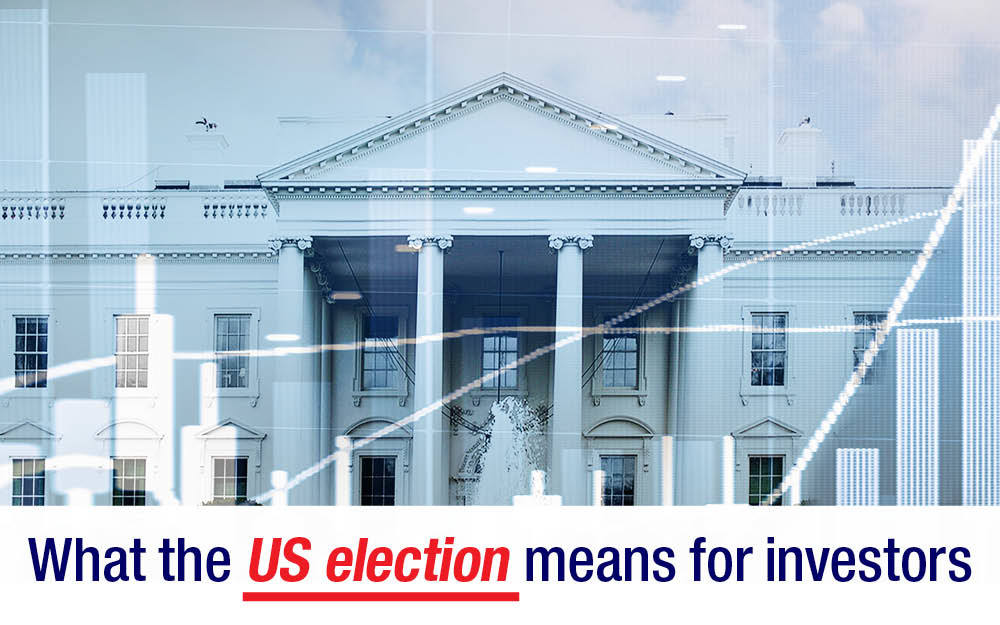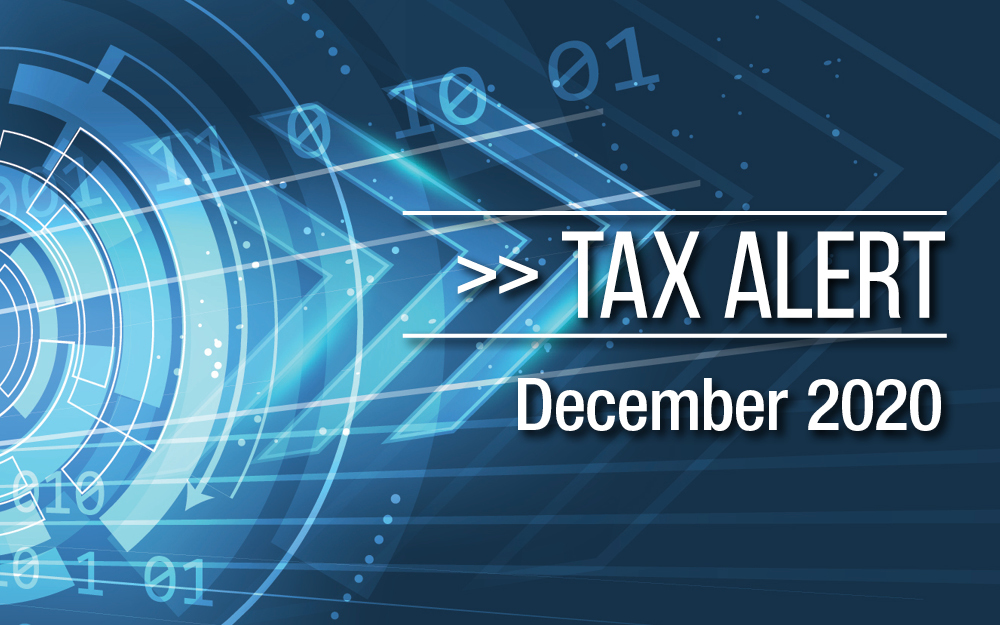
Summer 2020
December and summer are finally here, along with a renewed sense of optimism that strict lockdown measures will ease by Christmas. It’s been a tough year, but once again Australians have proved extremely resilient. We wish all our clients and their families a relaxed and happy Christmas.
November was an extraordinarily action-packed month for the global and local economy. Joe Biden’s US election victory released a pressure valve on global markets, with US shares reaching new historic highs and Australian shares up more than 9% over the month.
Markets also responded positively to the potential early release of effective coronavirus vaccines despite a rise in global cases. Oil prices were quick to respond to the prospect of borders reopening, with Brent Crude up almost 22% over the month.
In Australia, the Reserve Bank (RBA) cut its target cash rate and 3-year government bond yields from 0.25% to 0.1%, or one tenth of one percent. The RBA is not expecting to increase rates for at least three years. Early indications are that swift action by the government and the RBA have limited the impact of the COVID recession. Economic growth is now forecast to contract 4% in 2020, before rebounding 6% in the year to June 2021. Unemployment, which rose slightly to 7% in October, is forecast to peak at 8% this year but to remain at a relatively high 6% in December 2022. This is reflected in the fall in annual wages growth from 1.8% to 1.4% in the year to September. The Aussie dollar rose 5% on US dollar weakness in November, to close at US74c. The US currency is falling as a spike in coronavirus infections and delays in government stimulus raise the prospect of more money printing.

What the US election means for investors
Democrat Joe Biden is pressing ahead with preparations to take the reins as the next President of the United States. Despite legal challenges and recounts, the early signs are that markets are responding positively.
In fact, the US sharemarket hit record highs in the weeks following the November 3 election as Biden’s lead widened.
So what can we expect from a Biden Presidency?
Biden’s key policies
The policies Joe Biden took to the election which stand to have the biggest impact on the US economy and global investment markets include the following:
- Corporate tax increases. The biggest impact on corporate America would come from Biden’s plan to lift the corporate tax rate to 28 per cent. This would partially reverse President Trump’s 2017 cut from 35 per cent to 21 per cent. Biden is also considered more likely to regulate the US tech giants to promote more competition. These plans may face stiff opposition from a Republican Senate (which appears likely).
- Stimulus payments to households. Biden supports further fiscal stimulus to boost consumer spending. While there were hopes that this could be delivered before the end of the year, action now seems unlikely until after January 20.
- Infrastructure program. Biden has promised to rebuild America’s ageing public infrastructure, from roads, bridges, rail and ports to inland waterways. This would stimulate the construction and engineering sectors.
- Climate policy. Biden is expected to rejoin the Paris Climate Accord and join other major economies pledging zero net carbon emissions by 2050. To achieve this, he would likely promote renewable technologies at the expense of fossil fuels.
- Expand affordable healthcare. Biden wants to create affordable public health insurance and lower drug prices to put downward pressure on insurance premiums.
- Turn down the heat on trade. Biden will continue to put pressure on China to open its economy to outside investment and imports. But unlike President Trump’s unpredictable, unilateral action, he is expected to take a more diplomatic approach and build alliances with other countries in the Asian region to counter China’s expansionism.
While a Republican Senate may oppose measures such as higher corporate taxes and tougher regulation of industry, it is expected to be more open to other policy initiatives.
The outlook for markets
The general view is that further stimulus spending should support the ongoing US economic recovery which will in turn be positive for financial markets.
While Biden is committed to heeding expert advice in his handling of the coronavirus, a return to lockdown in major cities may put a short-term brake on growth.
Longer-term, recent announcements by pharmaceutical company Pfizer and others have raised hopes that vaccines to prevent COVID-19 may not be far off. This would provide an economic shot in the arm and continued support for global markets.
However, as sharemarkets tend to be forward looking, the US market appears to have already given Biden an early thumbs up with the S&P500 Index hitting record highs in mid-November.
Lessons of history
Despite the Republicans’ more overt free market stance, US shares have done better under Democrat presidents in the past with an average annual return of 14.6 per cent since 1927. This compares with an average return of 9.8 per cent under Republican presidents.
While the past is no guide to the future, it does suggest the market is not averse to a Democratic president.
What’s more, shares have done best during periods when there was a Democrat president and Republican control of the House, the Senate or both with an average annual return of 16.4 per cent.i
Implications for Australia
Australian investors should also benefit from a less erratic, more outward-looking Biden presidency.
Any reduction in trade tensions with China would be positive for our exporters and Australian shares. While a faster US transition to cleaner energy might put pressure on the Morrison government and local companies that do business in the US to do the same, it could also create investment opportunities for Australia’s renewables sector.
Ultimately, what’s good for the US economy is good for Australia and global markets.
If you would like to discuss your overall investment strategy as we head towards a new year and new opportunities, don’t hesitate to contact us.

Tax Alert December 2020
Although individuals and small business owners are now enjoying welcome tax relief in the wake of some valuable tax changes, there is more on the horizon as the government seeks to reboot the Australian economy.
Here’s a quick roundup of significant developments in the world of tax.
Temporary carry-back of tax losses
Previously profitable companies struggling with tough COVID-induced business conditions may find the government’s new tax loss carry-back provisions a useful tool to help keep their operation running.
Businesses with a turnover of up to $5 billion can now generate a tax refund by offsetting tax losses against previous profits.
Under the new measures, eligible companies can elect to carry-back tax losses incurred in 2019-20, 2020-21 and 2021-22 against profits made in 2018-19 or later years to gain a refund.
Full expensing of capital purchases
Another valuable initiative is the introduction of a temporary tax incentive allowing the full cost of eligible capital assets to be written off in the year they are first used or installed ready for use.
The measure applies from 6 October 2020 to 30 June 2022 and applies to new depreciable assets and improvements to existing assets.
Small businesses with an annual turnover under $10 million can also use it for second-hand assets.
Depreciation pool changes
From 6 October 2020, small businesses with a turnover under $10 million are allowed to deduct the balance of their simplified depreciation pool. This applies while full expensing is in place.
The current provisions preventing small businesses from re-entering the simplified depreciation regime for five years also remain suspended.
Early start to personal tax cuts
Individual taxpayers are now enjoying the next stage of the government’s tax plan, after the start date was brought forward to 1 July 2020.
Under the Stage 2 changes, the low income tax offset increased from $445 to $700; the upper limit for the 19 per cent tax bracket moved from $37,000 to $45,000; and the upper limit for the 32.5 per cent bracket rose from $90,000 to $120,000.
During 2020-21, there is also a one-year extension to the low and middle income tax offset, which is worth up to $1,080 for individuals and $2,160 for dual income couples.
Shortcut for home expenses extended again
Employees using the shortcut method to calculate their working from home expenses can continue using it following the ATO’s decision to extend its end date again – this time until 31 December 2020.
The ATO has updated its guidance on the shortcut measure and stated consideration will be given to a further extension.
The shortcut method allows employees and businessowners working from home between 1 March 2020 and 31 December 2020 to claim 80 cents per work hour for their running expenses.
Additional small business tax concessions
Small businesses should also check out their eligibility for several tax concessions now the annual turnover threshold for them has been increased from $10 million to $50 million.
From 1 April 2021, eligible businesses will be exempt from the 47% FBT on car parking and work-related portable devices (such as phones and laptops) provided to employees.
Eligible business will also be able to access simplified trading stock rules, remit their PAYG instalments based on GDP adjusted notional tax and have a two-year amendment period for income tax assessments from 1 July 2021.
Granny flats to be CGT exempt
Families considering building a granny flat on their property will benefit from the announcement of a new capital gains tax (CGT) exemption for granny flat arrangements. Although the exemption is yet to be legislated, the planned start date is 1 July 2021.
The exemption will clarify that CGT does not apply to the creation, variation or termination of a formal written granny flat arrangement within families. CGT still applies to commercial rental arrangements.
Refresh your ABN details
The ATO is reminding business taxpayers to keep their Australian Business Number (ABN) details updated so government agencies can identify business in affected areas during natural disasters.
Incorrect details could see you miss out on valuable assistance or potential grants during and after a disaster.

Maybe just maybe, Christmas is a little more in 2020
What if Christmas, doesn’t come from a store. What if Christmas…perhaps…means a little bit more!”
― Dr. Seuss
This year has looked different to other years, as the COVID-19 pandemic impacted our lives in many ways. As we look towards the festive season after what has been quite a challenging year for many, we need to consider how this celebration too might change.
It’s not all doom and gloom. Gratitude has been a real focus to the year, and as a result many people are shifting away from the silly season’s materialism and excess to reassess what Christmas means to them.
Our “new normal” festive season , can be one that is memorable and joy-filled, whether you celebrate this holiday or just enjoy unwinding at the end to the year.
Expressing gratitude
Being thankful for what we have is important; especially so in a year in which bad news may have overpowered the good. While perhaps you will be unable to travel to your annual holiday destination or see as many people as you ordinarily would, it’s helpful to focus on what you still have instead of what is missing.
Rather than merely being a buzzword, gratitude has been shown to reduce depression, anxiety and stress.i Whether it’s around the table at Christmas or in the lead up to the holidays, tell your loved ones what you’re thankful for, as this can inspire them to also reflect on this. It can also help reframe the year from being one of hardship to also having contained moments of happiness and opportunities.
Creating memories
As many of us have been separated from loved ones due to restrictions, the holidays provide an opportunity to reconnect in person. Even if you’re unable to continue certain traditions, such as a family road trip or a big indoor gathering, what truly matters is the time you spend with those you care for.
Perhaps even new traditions can be formed as you create memories together. Depending on what the restrictions will be come late December, you might be able to spend time with family and friends trying something different – if there has always been one designated Christmas host, perhaps this year you have a family picnic where everyone brings a dish to share.
Supporting others
Christmas time is synonymous with extending goodwill to all – and this year there are more people who are doing it tough as a result of the pandemic, as well as the bushfires earlier in 2020.
Give a helping hand to those who have fallen on hard times by volunteering some of your time to a worthy cause (such as a free meal service to those in need) or donating money if you’re able to. These gestures can also reaffirm your understanding of what you have to be thankful for.
Reducing overspending
Whether or not you were financially impacted by the pandemic this year, there is expected to be a trend of reduced spending over the Christmas period. A recent survey by Finder reported that 37% of Aussies plan to spend less on average this Christmas.ii
To reduce your spending, set and then stick to a budget. Don’t leave gift buying to the last minute when you’re more likely to miss bargains or to panic buy. Also watch your usage of your credit card, or buy-now-pay-later schemes so you don’t have a debt hangover in the new year to worry about.
As this year wraps up, we would like to express thanks for your support during 2020 and wish each and every one of you a safe and happy holiday season.
i https://www.tandfonline.com/doi/abs/10.1080/17439760.2016.1221127
ii https://www.finder.com/christmas-spending-statistics
